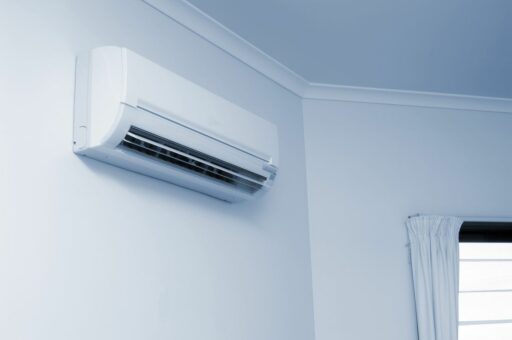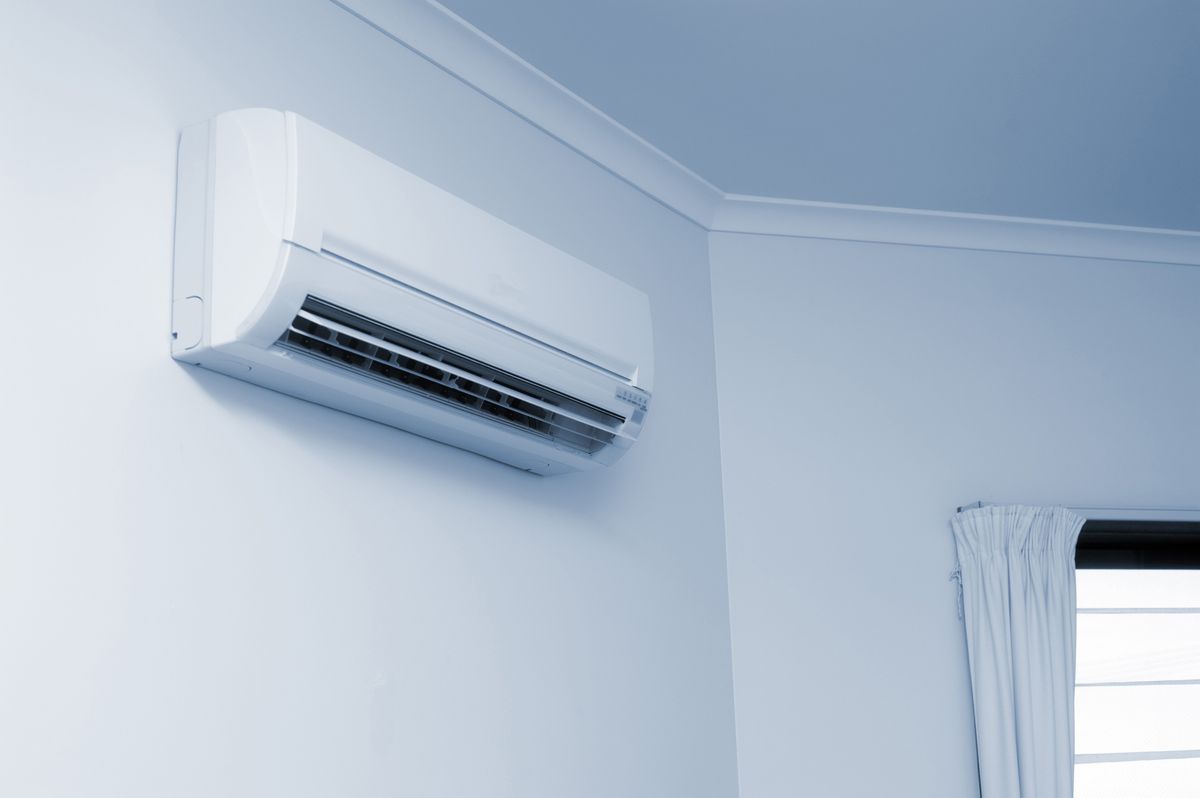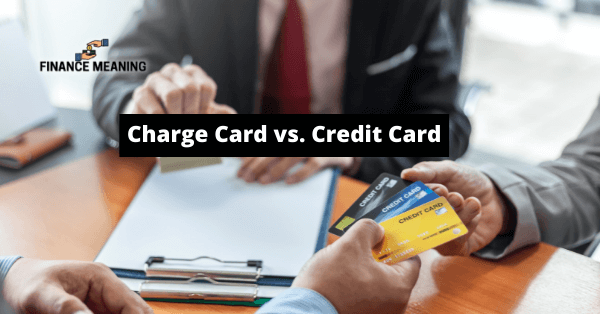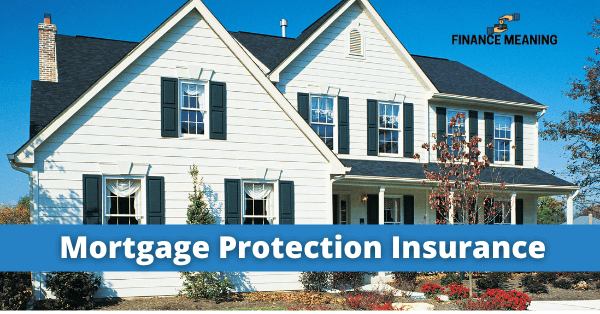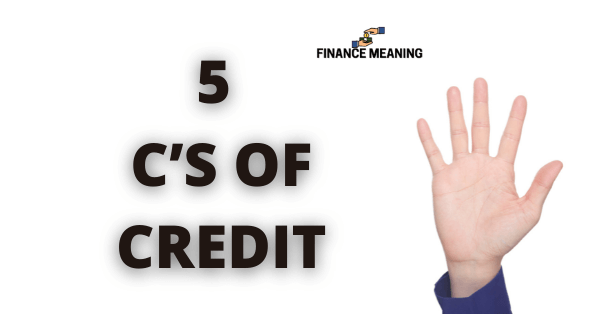Securing financing for air conditioning systems with bad credit can be a daunting task. However, understanding your credit status, exploring various financing options, and employing strategies to improve your credit can make the process more manageable. This article aims to guide individuals with less-than-ideal credit through the various avenues available for financing air conditioning units, while also providing tips on negotiating better terms and finding alternative solutions to meet immediate cooling needs.
Key Takeaways
- Bad credit can limit financing options and result in higher interest rates, but understanding its impact is the first step towards finding viable solutions.
- There are specific financing options available for air conditioning systems, such as bad credit personal loans, credit card financing, and rent-to-own programs.
- Improving credit scores is a long-term strategy that involves regular credit monitoring, debt management, and responsible credit usage.
- Negotiating with lenders and shopping around for better terms can lead to more favorable financing conditions, even with bad credit.
- Alternative solutions like portable air conditioners, community programs, and energy-efficient home modifications provide immediate relief without requiring extensive financing.
Understanding Bad Credit and Its Impact on Financing


Defining Bad Credit
Bad credit refers to a low credit score, which is a numerical expression of a person’s creditworthiness based on an analysis of their credit files. A low score can be the result of various factors, including late payments, defaulting on loans, or filing for bankruptcy. Bad credit can significantly hinder an individual’s ability to secure financing for large purchases such as air conditioning systems.
Credit scores typically range from 300 to 850, with different lenders having varying definitions of what constitutes ‘bad’ credit. However, scores below 580 are generally considered poor and may limit financing options:
- 300-579: Poor
- 580-669: Fair
- 670-739: Good
- 740-799: Very Good
- 800-850: Exceptional
It’s crucial for consumers to understand where they stand credit-wise before seeking financing options. This knowledge can help in negotiating better terms and finding the most suitable financing solution.
How Credit Scores Affect Loan Eligibility
Your credit score is a crucial factor that lenders consider when determining your eligibility for a loan. A higher credit score often means more favorable loan terms, including lower interest rates and better repayment options. Conversely, a lower credit score can limit your financing options and result in higher costs over time.
- Excellent Credit (720 and above): Eligible for most financing options with competitive rates.
- Good Credit (680-719): Good terms available, but not as favorable as those with excellent credit.
- Fair Credit (640-679): Some financing options available, but with higher interest rates.
- Poor Credit (600-639): Limited options; may require a co-signer or higher down payments.
- Bad Credit (below 600): Few options; often high interest rates and stringent terms.
While bad credit can make it challenging to secure financing, there are still ways to explore HVAC financing options without relying on traditional credit checks. Companies like GoodLeap offer flexible payment solutions that consider more than just your credit score, including soft credit checks, zero down programs, and energy initiatives to make upgrades more affordable.
The Relationship Between Credit History and Interest Rates
Your credit history is a vital factor that lenders consider when determining the interest rates on a loan. A poor credit history often results in higher interest rates, as lenders view borrowers with bad credit as higher risk. This means that financing an air conditioning system can be more expensive if your credit score is low.
- Excellent Credit: Lower interest rates, more favorable terms
- Good Credit: Reasonably low rates, good terms
- Fair Credit: Moderate rates, average terms
- Poor Credit: High interest rates, less favorable terms
When seeking financing for air conditioning with bad credit, it’s crucial to understand that the interest rates you’re offered will reflect your creditworthiness. While bad credit can limit your options and increase costs, there are still ways to navigate these challenges and find a solution that fits your budget.
Exploring Air Conditioning Financing Options


Personal Loans for Bad Credit
Individuals with bad credit may still have options for financing an air conditioning system through personal loans specifically designed for lower credit scores. Lenders specializing in bad credit loans often have more flexible criteria, allowing for approval where traditional banks might not. However, it’s important to be aware that these loans can come with higher interest rates and fees.
- Research lenders that offer bad credit personal loans
- Compare terms and interest rates
- Consider the total cost of the loan, including any additional fees
While the upfront costs might be higher, a personal loan can provide the immediate financing needed for an air conditioning system, making it a viable option for those with poor credit histories.
Remember to read the loan agreement carefully and understand the repayment schedule. A personal loan for bad credit can be a stepping stone to improving your financial situation, provided you manage the loan responsibly.
Credit Card Financing
Financing an air conditioning system with a credit card can be a viable option for those with bad credit, especially if the card offers a 0% introductory APR period. This allows for interest-free payments within a specified time frame, making it a cost-effective solution if the balance can be paid off before the promotional period ends.
- Look for credit cards with introductory offers.
- Calculate the total cost to ensure it can be paid off in time.
- Avoid cards with high post-promotional interest rates.
When considering credit card financing, it’s crucial to be mindful of the potential for high interest rates after the introductory period. A failure to pay off the balance can lead to significant financial strain due to compounding interest charges.
Rent-to-Own Programs
Rent-to-own programs provide an alternative path to air conditioning ownership for individuals with bad credit. These programs allow you to rent the air conditioning unit with an option to purchase it at the end of the rental term. Payments made during the rental period can often contribute towards the purchase price.
- Initial setup fees are typically low, making it accessible for those with limited funds.
- The rental term agreements vary, offering flexibility in payment schedules.
- No credit check is usually required, bypassing the hurdle of bad credit.
While rent-to-own programs can be more expensive over time due to higher cumulative costs, they offer immediate relief without the need for full upfront payment.
It’s important to read the terms carefully, as some contracts may include hidden fees or unfavorable conditions. Comparing different rent-to-own offers can help you find the most cost-effective solution for your situation.
Government and Utility Company Rebates
For individuals with bad credit, government and utility company rebates can provide a viable option to finance air conditioning systems. These rebates are designed to encourage energy efficiency and can significantly reduce the upfront cost of purchasing a new air conditioner. Eligibility for these rebates often does not depend on credit history, making them an accessible choice for those with less-than-ideal credit scores.
- The Inflation Reduction Act Residential Energy Rebate Programs
- State-specific energy efficiency incentive programs
- Utility company rebates for qualifying HVAC systems
While these rebates can cover a substantial portion of the cost, it’s important to note that they are typically not a financing solution but rather a discount on the purchase price. As such, they can be combined with other financing options to further ease the financial burden.
Remember to check both federal and local programs, as they may have different qualification criteria and benefits. Taking advantage of these rebates can lead to long-term savings on energy bills, making them a financially savvy option in addition to their immediate cost-reduction benefits.
Strategies to Improve Credit for Future Purchases


Regularly Monitoring Your Credit Report
Keeping a close eye on your credit report is crucial for anyone looking to finance an air conditioning system with bad credit. Regular monitoring can help you identify and rectify any errors that may be unfairly lowering your score. This proactive approach allows you to ensure that all information is accurate and up-to-date.
- Review your credit report from each credit bureau at least once a year.
- Dispute any inaccuracies or outdated information you find.
- Keep track of your credit score’s progress as you implement strategies to improve it.
By consistently monitoring your credit report, you can take immediate action to address any issues that arise, potentially boosting your credit score over time. This vigilance is key to positioning yourself more favorably for future financing opportunities.
Debt Consolidation and Management
Effective debt management is crucial for individuals with bad credit looking to finance an air conditioning system. Understanding your debt obligations and prioritizing the repayment of high-interest debts can significantly improve your financial stability. Debt consolidation can be a strategic move, as it allows you to combine multiple debts into a single loan with a lower interest rate, making repayments more manageable.
One of the primary benefits of debt consolidation is the potential to secure lower interest rates. This can lead to substantial savings over time. Here’s a simple breakdown of how consolidation might affect your payments:
| Original Debts | Interest Rate | Monthly Payment |
|---|---|---|
| Credit Card A | 20% | $150 |
| Credit Card B | 22% | $100 |
| Loan C | 15% | $200 |
| Consolidated Loan | 14% | $400 |
By consolidating your debts, you not only streamline your finances but also potentially reduce the total interest paid over the life of your loans.
It’s important to approach debt consolidation with caution, as it often involves taking out a new loan to pay off existing debts. Ensure that the terms of the new loan are favorable and that you’re not extending the debt period unnecessarily, which could lead to more interest paid in the long run.
Building Credit with Secured Credit Cards
Secured credit cards offer a viable path for individuals with bad credit to rebuild their credit profile. Unlike traditional credit cards, a secured card requires a cash deposit that serves as collateral and sets the credit limit. By making timely payments and keeping balances low, cardholders can demonstrate financial responsibility and potentially improve their credit scores over time.
- Make a deposit to set your credit limit
- Use the card for small, manageable purchases
- Pay the full balance each month to avoid interest
- Monitor your credit score regularly to track improvements
It’s essential to understand that secured credit cards are not a quick fix. They are a tool for long-term credit building, requiring discipline and consistent financial behavior. As your credit improves, you may become eligible for cards with better terms and eventually return to mainstream credit options.
Timely Payments and Credit Utilization
Maintaining timely payments is crucial for improving your credit score. Each on-time payment is reported to credit bureaus, positively impacting your credit history. Conversely, late payments can significantly harm your score. It’s essential to set reminders or automate payments to avoid missing due dates.
Credit utilization – the ratio of your credit card balances to their limits – should be kept low. Experts recommend using less than 30% of your available credit to appear responsible to lenders. Here’s a simple breakdown of credit utilization:
- Below 30%: Ideal for credit health
- 30%-60%: Fair, but can be improved
- Above 60%: Likely to negatively impact your score
Reducing your credit card balances not only improves your utilization rate but also saves you money on interest, creating a positive cycle that can lead to better financing terms in the future.
Negotiating with Lenders for Better Terms


The Importance of Shopping Around
When seeking financing for air conditioning systems, it’s crucial to shop around and compare offers from various lenders. This process can reveal significant differences in terms, interest rates, and additional fees that can have a profound impact on the overall cost of financing.
- Start by gathering quotes from multiple financial institutions.
- Compare the interest rates, repayment terms, and any potential fees.
- Check for prepayment penalties or any hidden costs that could arise during the loan period.
By taking the time to thoroughly compare options, you can identify the most cost-effective financing solution, even with bad credit. This proactive approach can lead to substantial savings over the life of the loan.
Remember, the best HVAC financing options, as highlighted by sources like Forbes, offer competitive interest rates, flexible loan terms, and fast funding speeds. It’s essential to look for these features when evaluating potential lenders.
Discussing Options with Credit Unions
Credit unions can be particularly understanding and flexible for individuals with bad credit seeking financing. They often offer more personalized service and may be willing to work with you to structure a loan that fits your financial situation. Unlike traditional banks, credit unions are member-owned, which means they may have more leeway in terms of the lending criteria they can offer.
- Discuss your financial situation openly with the credit union representative.
- Inquire about special loan products or programs designed for those with less-than-perfect credit.
- Ask about the possibility of a secured loan, where you offer collateral in exchange for a lower interest rate.
Remember, building a relationship with your local credit union can lead to better terms and understanding of your unique financial needs over time. It’s worth exploring these options, especially when traditional lenders may not provide the flexibility you require.
Understanding the Fine Print
When considering air conditioning financing options, it’s crucial to understand the fine print in any loan agreement. This includes being aware of potential hidden fees, the annual percentage rate (APR), and any penalties for late payments or early payoff.
- Hidden Fees: Look out for processing fees, application fees, and maintenance fees.
- APR: This is the cost you’ll pay annually for the loan, including interest and additional charges.
- Late Payment Penalties: Know the consequences of a late payment to avoid additional costs.
- Early Payoff: Some lenders charge a fee for paying off your loan early. Make sure to check if this applies.
Carefully reviewing the terms can prevent surprises and additional costs down the line. It’s important to ask questions and clarify anything that’s unclear before signing any financing agreement. This due diligence can save you money and stress in the long term.
Leveraging Competing Offers
When seeking financing for air conditioning systems, leveraging competing offers can be a powerful tool in negotiating better terms. Presenting multiple financing options to a lender can demonstrate that you’ve done your homework and are serious about finding the best deal. This can often prompt them to offer more competitive rates or flexible terms to win your business.
- Research and gather offers from various lenders, including banks, online financing companies, and HVAC financing specialists.
- Compare the terms, interest rates, and fees of each offer.
- Use the most favorable offers as leverage when negotiating with your preferred lender.
By effectively leveraging competing offers, you can potentially reduce the financial burden of high interest rates and unfavorable terms, even with bad credit.
Remember, lenders are in the business of lending money and are often willing to negotiate to avoid losing a potential customer to the competition. It’s important to approach negotiations confidently and be prepared to walk away if the terms are not in your favor.
Alternative Solutions for Immediate Cooling Needs


Portable and Window Air Conditioners
For individuals with bad credit seeking immediate cooling solutions, portable and window air conditioners offer a viable alternative. These units can be a cost-effective and less financially burdensome option compared to central air conditioning systems.
- Portable air conditioners are freestanding units that can be moved from room to room, providing flexibility and convenience. They are ideal for renters or those who prefer a temporary solution.
- Window air conditioners are designed to fit into a window frame. They are a more permanent solution than portable units but still offer the advantage of being less expensive than full HVAC systems.
Purchasing these types of air conditioners may not require the extensive credit checks and financing agreements associated with larger installations. However, it’s important to consider the energy efficiency and capacity of the unit to ensure it meets your needs without incurring excessive electricity costs.
While these options may not require long-term financial commitments, they can still represent a significant upfront cost. Budgeting for this purchase and exploring retail financing options can help manage the expense.
Community Assistance Programs
For individuals with bad credit, community assistance programs can be a lifeline when it comes to staying cool during the hot months. These programs often provide air conditioning units at reduced costs or even for free to those who qualify based on income or other factors.
- Local government initiatives often partner with non-profits to distribute air conditioners to vulnerable populations.
- Non-profit organizations may offer programs that assist with the installation and maintenance of cooling systems.
- Utility companies, like LADWP, run programs such as the AC Optimization Program, which provides services to eligible residential and commercial customers.
It’s essential to research and apply for these programs well before the peak of summer, as there can be limited availability and high demand.
Remember to check with your local Department of Social Services or community action agencies to learn about the specific options available in your area. These programs not only help with immediate cooling needs but can also contribute to long-term savings on energy bills.
Short-term Rentals and Leasing Options
When immediate cooling needs arise, and purchasing an air conditioning unit is not feasible, short-term rentals and leasing options can provide a temporary solution. These options allow individuals to have access to air conditioning without the commitment of a full purchase, which can be particularly beneficial for those with bad credit.
- Rentals: Temporary air conditioning units can be rented for a specific period, often ranging from a few days to several months.
- Leasing: Leasing programs may offer longer terms and can sometimes include maintenance services as part of the agreement.
Both options typically require less stringent credit checks, making them more accessible to those with lower credit scores. It’s important to compare the costs and terms of different rental and leasing companies to find the most suitable deal.
While these options can be more cost-effective in the short term, they may not always be the most economical choice in the long run. Carefully consider the total cost of renting or leasing versus purchasing an air conditioning unit outright.
Energy-Efficient Home Modifications
Making energy-efficient modifications to your home can not only reduce the need for air conditioning but also lead to long-term savings. Upgrading to energy-efficient windows or adding insulation can significantly decrease indoor heat during summer months.
Consider the following modifications:
- Installing reflective roofing materials
- Sealing leaks and drafts around doors and windows
- Adding attic insulation
- Planting shade trees strategically around the property
By investing in these modifications, homeowners can enjoy a cooler environment and lower energy bills without relying heavily on air conditioning systems.
Remember, while the initial costs may be higher, the energy savings over time can help offset these expenses. It’s also worth exploring local rebates or incentive programs that can help finance these energy-efficient upgrades.
Conclusion
Navigating the complexities of air conditioning financing with bad credit can be a daunting task, but it’s not insurmountable. By understanding your options, such as personal loans, credit cards, rent-to-own programs, and government assistance, you can make an informed decision that suits your financial situation. Remember to carefully evaluate the terms and conditions of each financing option, seek out lenders who specialize in bad credit loans, and consider improving your credit score for better terms in the future. With the right approach, you can secure the financing needed to ensure your home remains comfortable throughout the year.
Frequently Asked Questions
Can I finance an air conditioning system with bad credit?
Yes, there are financing options available even with bad credit, such as personal loans from lenders that specialize in bad credit loans, rent-to-own programs, and credit card financing with higher interest rates.
How does a bad credit score affect my air conditioning financing options?
A bad credit score may limit your options for financing and result in higher interest rates or the need for a larger down payment. Lenders consider bad credit a higher risk, which often leads to less favorable terms.
Are there any government rebates for air conditioning if I have bad credit?
Yes, some government and utility company rebates for energy-efficient air conditioning systems are available regardless of credit score. It’s worth researching local programs for potential savings.
What steps can I take to improve my credit before financing an air conditioner?
To improve your credit, regularly monitor your credit report for errors, manage and consolidate your debts, use secured credit cards responsibly, and ensure timely payments and proper credit utilization.
How can I negotiate better terms with lenders despite having bad credit?
Shop around to compare offers, consider credit unions which may offer more favorable terms, understand all the terms and conditions, and leverage any competing offers to negotiate better terms.
What are some alternative cooling solutions if I can’t secure financing for a new air conditioner?
Consider portable or window air conditioners, which are more affordable, look into community assistance programs, explore short-term rental or leasing options, or make energy-efficient home modifications to reduce cooling needs.
